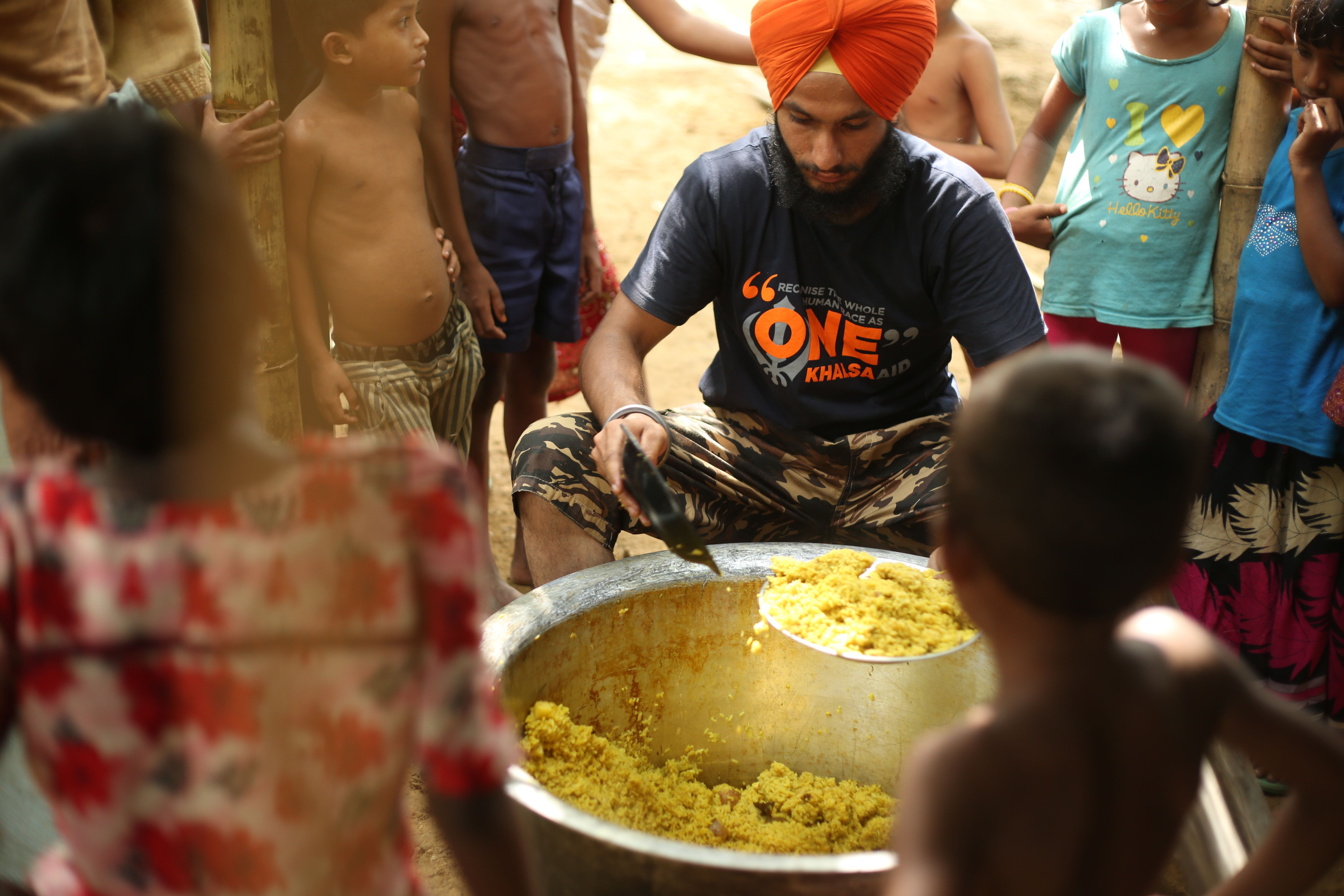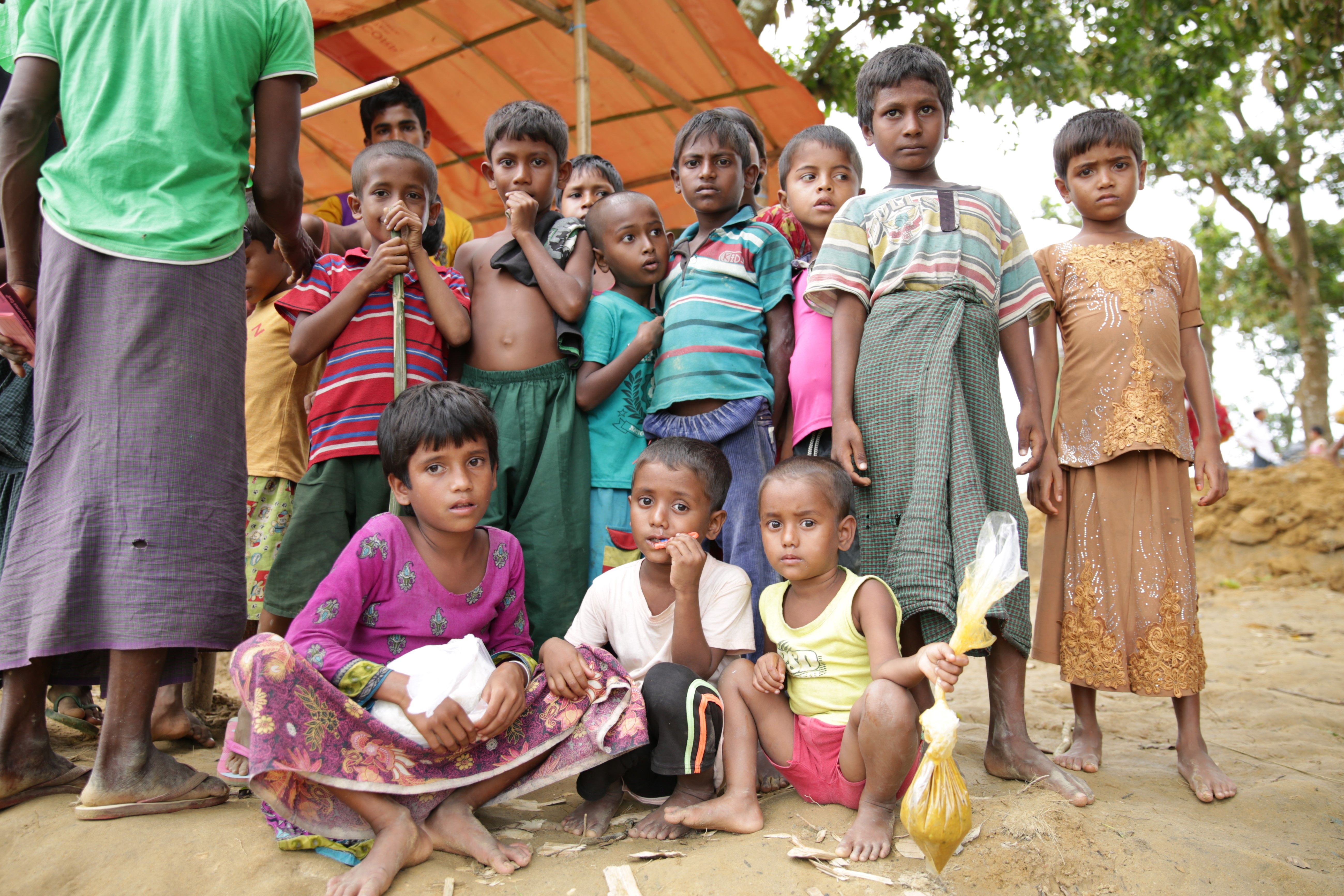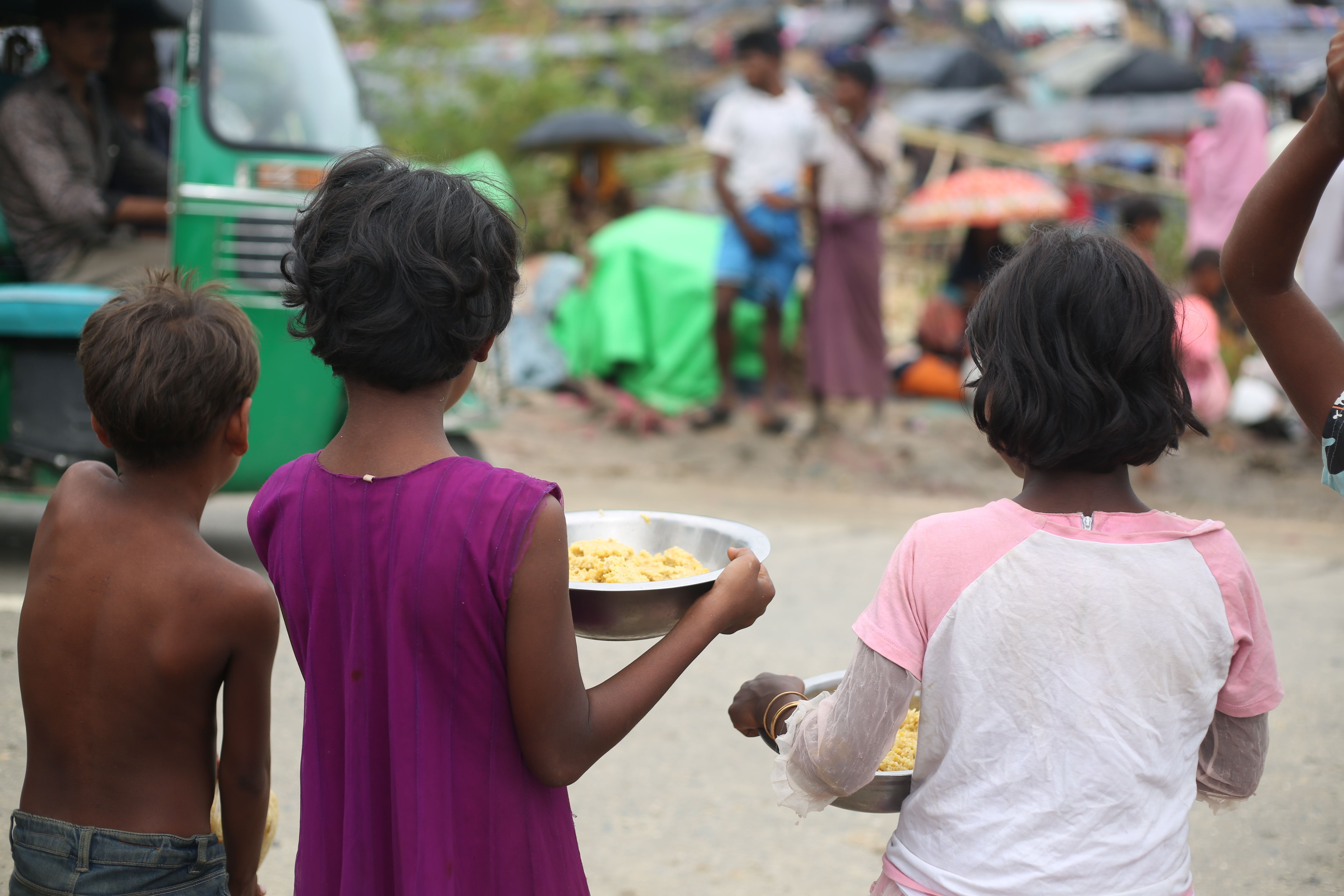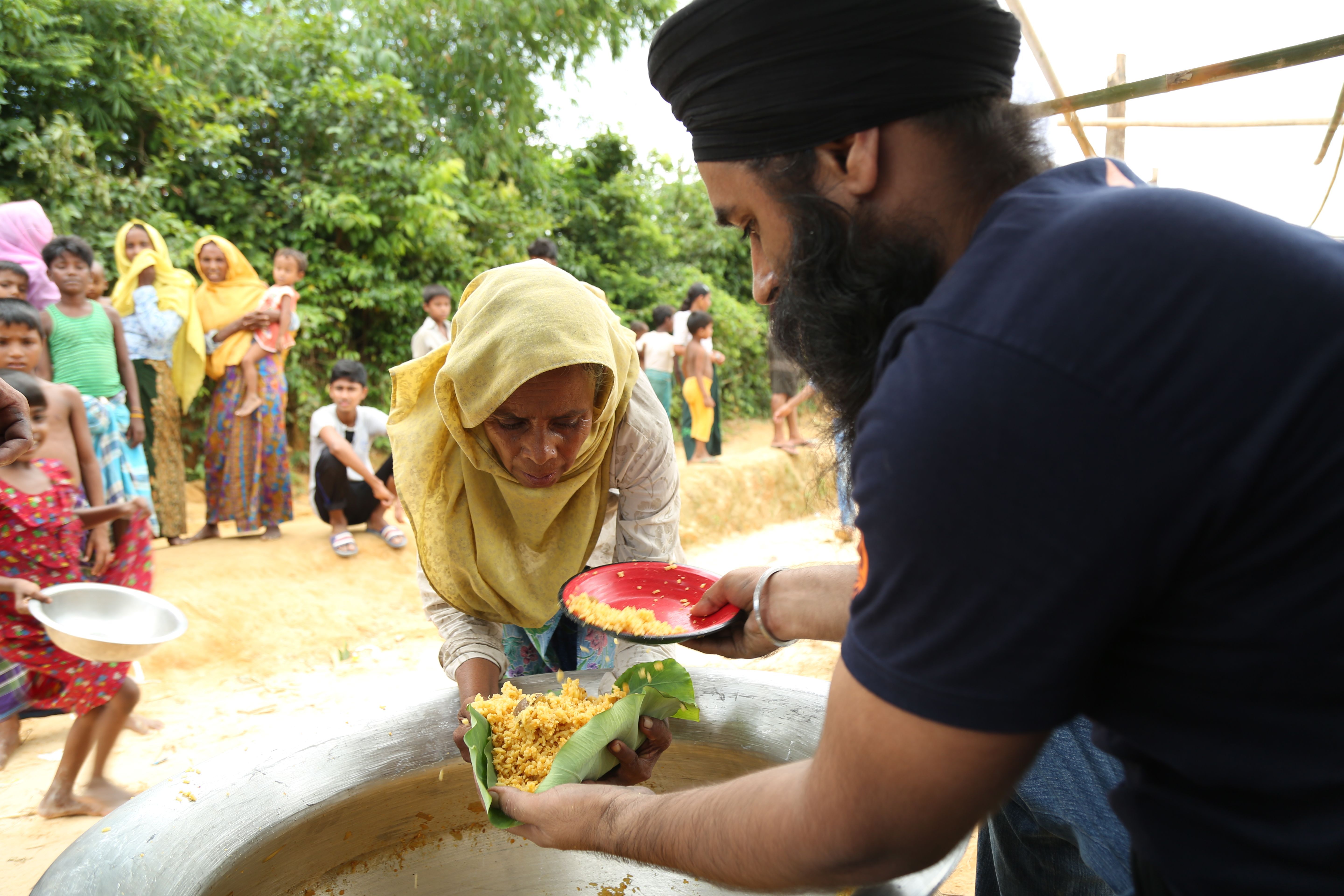Rohingya Muslim Refugees
Summary
Khalsa Aid witnessed the plight of the Rohingya Muslim refugees with much sorrow. In September 2017, Khalsa Aid India quickly dispatched a team of over 25 volunteers to provide immediate relief by distributing food, water, shelter repairs, and, most crucially, offering free transportation between the Bangladesh border and refugee camps.


What the problem was
The Rohingya are one of many ethnic minorities that reside in Rakhine State, Myanmar. Their persecution was carried out as early as 2014, when a census denied them as citizens in Bangladesh. Ever since, more than 300,000 Rohingya refugees have been in a constant state of peril and never-ending escape from the deadly violence, rape and devastation of their people by the Myanmar military.
How we helped
Food and water
As part of Phase 1 of immediate relief provision, the priority was to supply water and food as refugees continued to arrive hungry and parched. A daily langar service (community kitchen) was established, feeding up to 50,000 people.

Food and water
As part of Phase 1 of immediate relief provision, the priority was to supply water and food as refugees continued to arrive hungry and parched. A daily langar service (community kitchen) was established, feeding up to 50,000 people.
“These people are arriving in a desperate state. I have never seen anyone so relieved for a drink of water. They have no money to pay for public transport to the refugee camps. Local rickshaws have increased their rates because of the heightened demand so we have organised transportation to take families safely to the refugee camps.”

UN Sustainable Development Goals
This project supports the achievement of the following UN Sustainable Development Goals:



